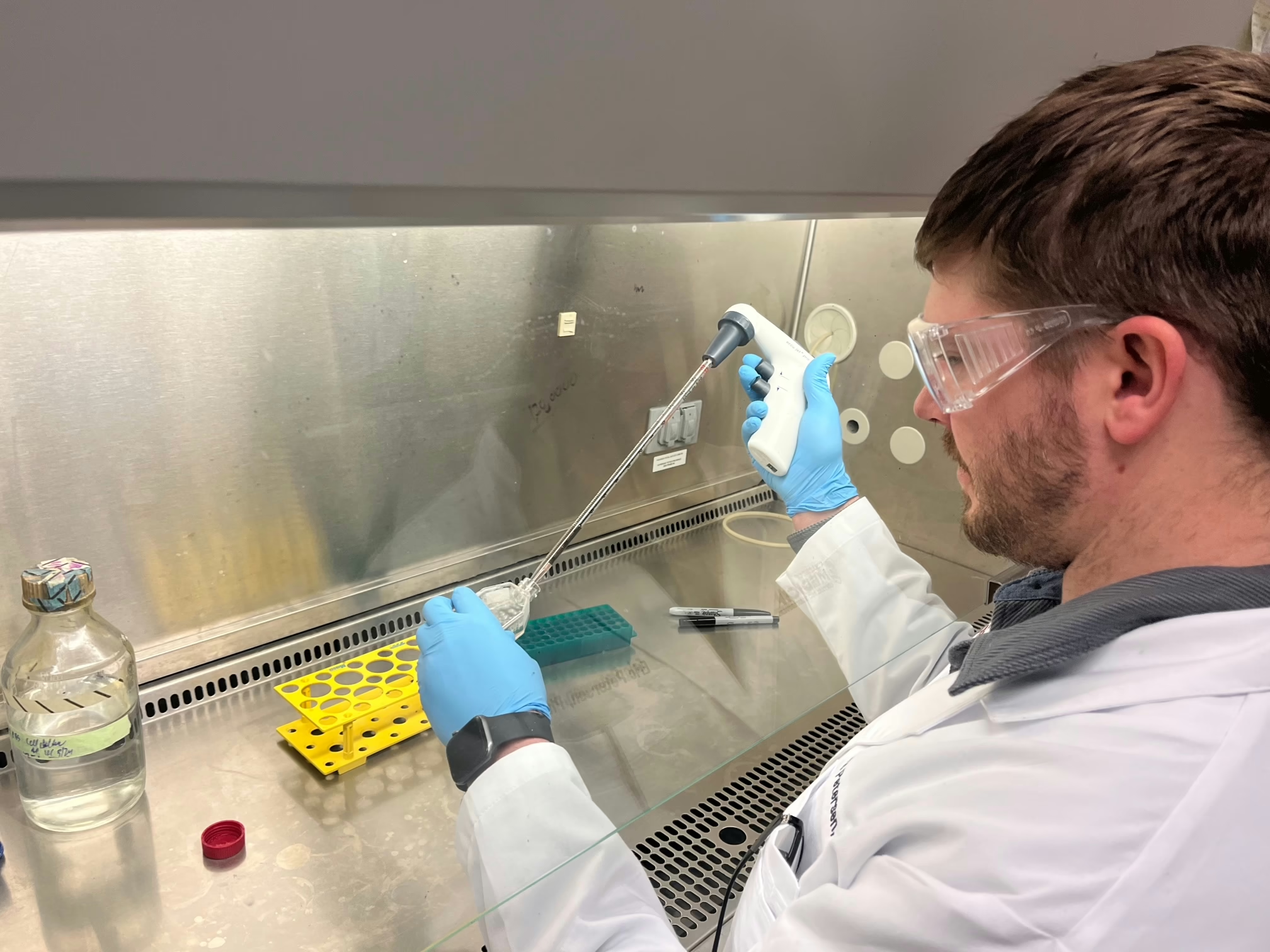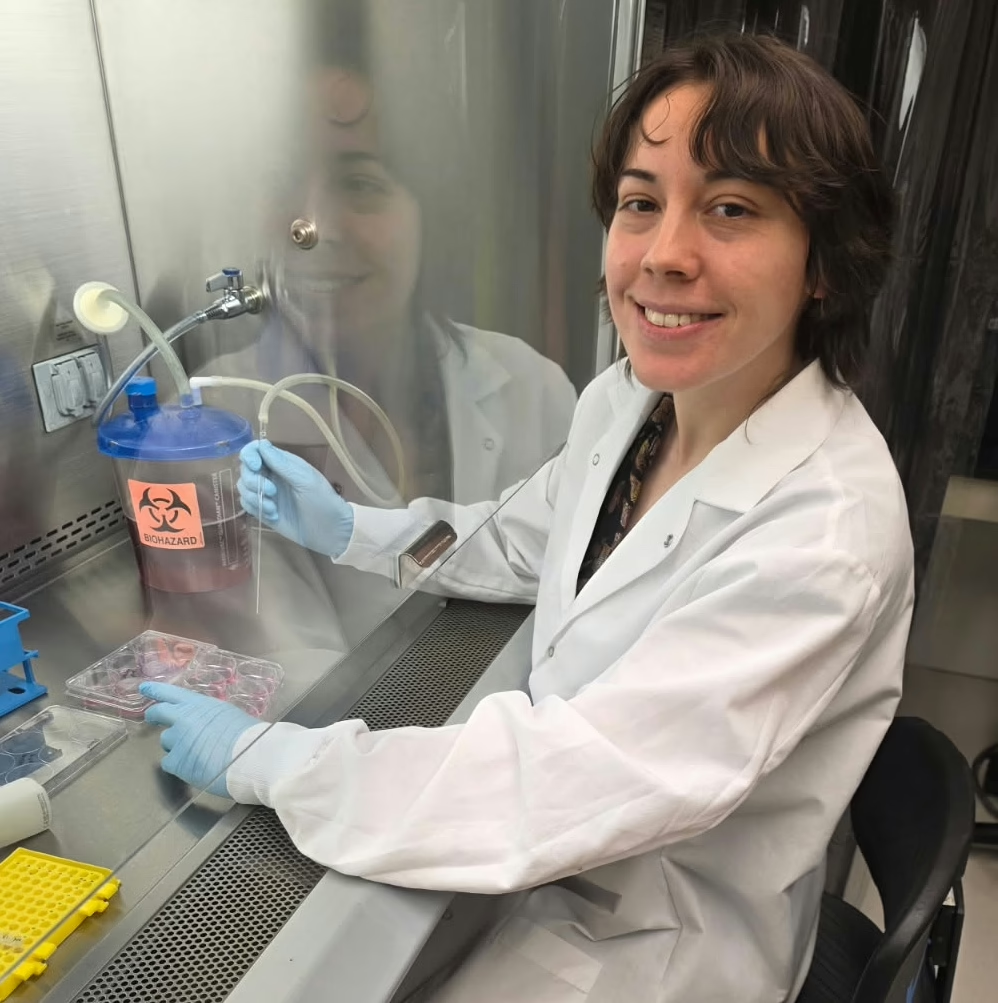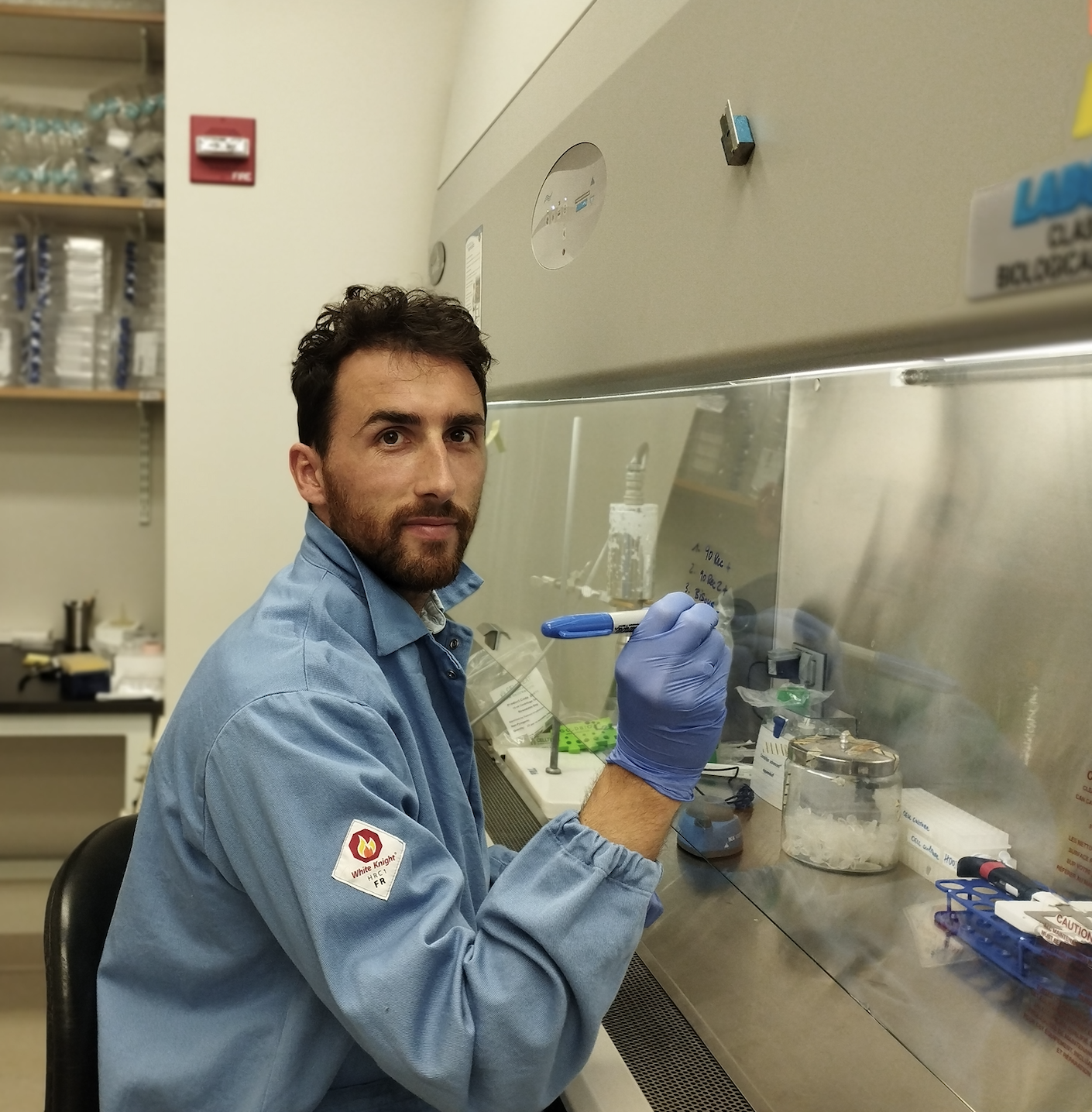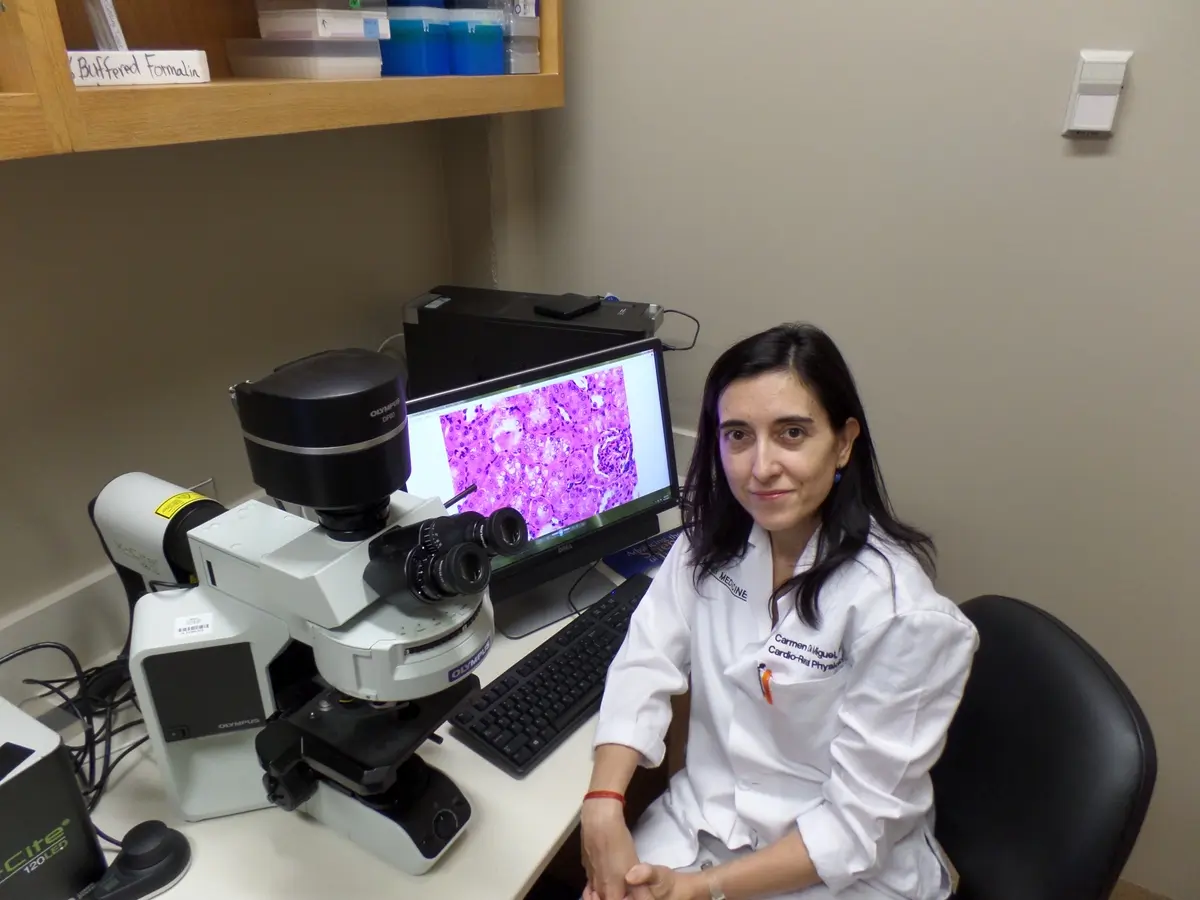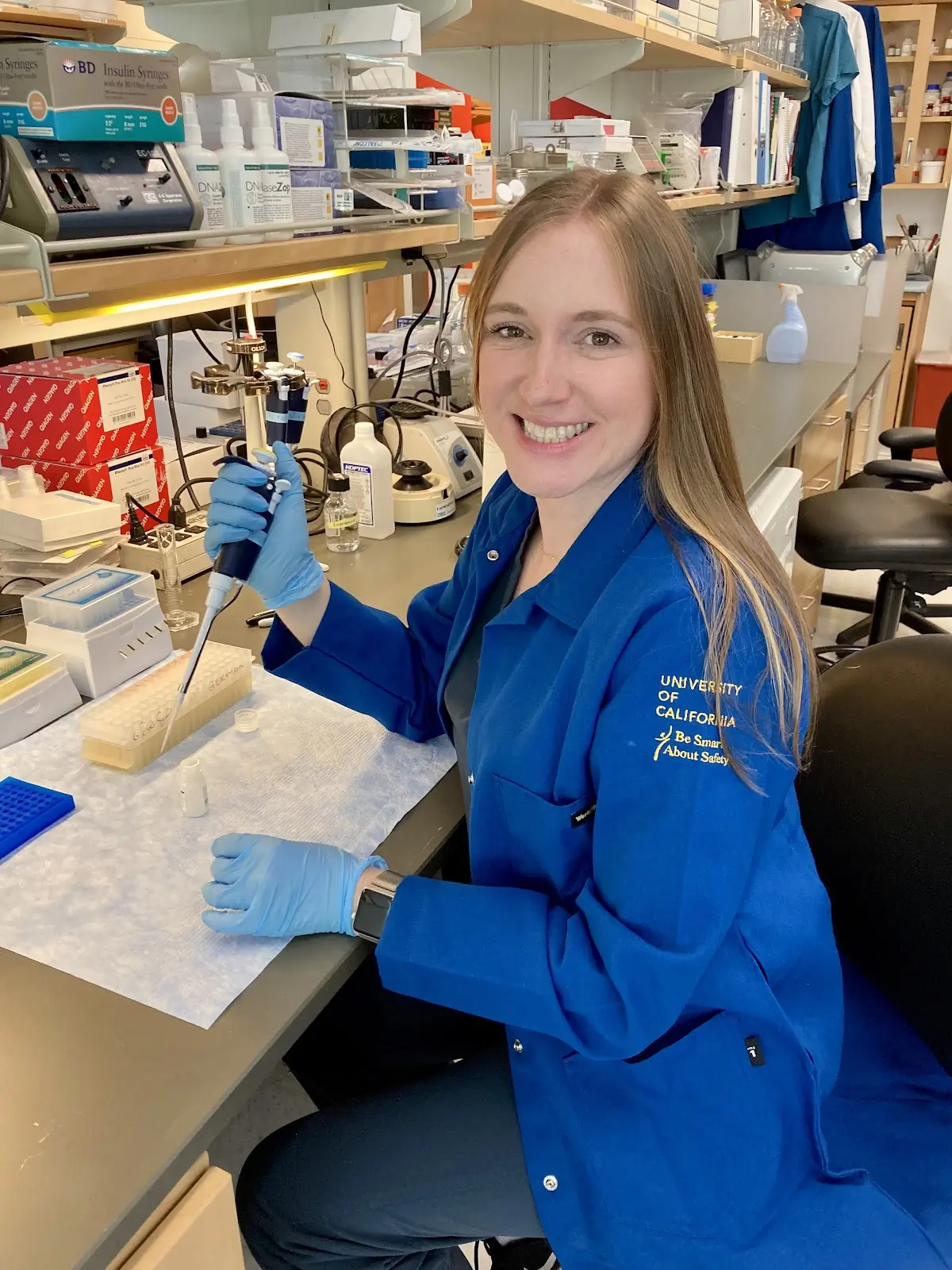Final Project Update
It has been truly an honor working with DRC. In this final report I share advances from the past year in determining the molecular mechanisms driving Nfkbid-dependent diabetes protection in NOD mice overexpressing the Nfkbid-60A transgene (NOD-60A mice). We previously showed NOD-60A mice possess elevated levels and activity of regulatory T cells (Tregs) compared to control NOD mice (1). FoxP3+ Tregs were isolated from NOD control, Nfkbid-deficient NOD and NOD-60A strains carrying a FoxP3<EGFP> transgene and RNA-Seq analysis was conducted to gain insight into genes and expression networks potentially contributing to enhanced Treg levels and function and diabetes resistance. Differential gene expression comparison and Ingenuity Pathway Analysis showed Tregs from NOD-60A mice have increased gene expression levels in pathways related to cellular proliferation and IL-10 production compared to NOD Tregs and Nfkbid-deficient NOD Tregs. Enhanced Treg proliferation in NOD-60A mice may push effector T cells to an exhausted state limiting their diabetogenic capacity and is currently an area of investigation.
DRC project support also enabled the development of a new mouse model to examine the contribution of the previously identified Bcl3 candidate gene to the phenotypical elevated Tregs levels and diabetes resistance in NOD-60A mice. We used CRISPR-Cas9 genomic editing to disrupt Bcl3 gene functiondirectly in NOD mice and established 2 lines of Bcl3-KO mice. Quantitative real time PCR analysis from both lines showed lack of Bcl3 gene expression. These lines were bred with the NOD-60A strain to introduce the Nfkbid 60A transgene. Heterozygous progeny were then crossed to fix Bcl3 KO status and analyze differences in Treg levels in NOD-60A-Bcl3KO mice carrying or -devoid of the 60A transgene. In this initial study, Treg levels were reduced in NOD.60A-Bcl3KO mice compared to NOD.60A mice. However, variability in Treg levels occurred, likely due to the unfixed status of the NOD Nfkbid allele within this generation. We are currently remedying this by breeding Nfkbid-/-Bcl3-/- (double knockout) mice (thus eliminating the NOD Nfkbid allele) prior to crossing them to the NOD.60A line. Cohorts have been set up to monitor changes in diabetes incidence but no diabetes has occurred as of yet.
6-Month Project Update
Due to the generous support of DRC, I am happy to report the following advances in efforts in determining the molecular mechanisms driving Nfkbid-dependent diabetes protection in NOD mice overexpressing the Nfkbid-60A transgene (NOD-60A mice). We have previously shown NOD-60A mice possess elevated levels of regulatory T cells (Tregs) compared to control NOD mice and Tregs from NOD-60A mice demonstrate enhanced capacity to inhibit the proliferation of other T cells in culture compared to control NOD Tregs (1). Support from DRC has allowed me to isolate Tregs from NOD control, Nfkbid-deficient NOD and NOD-60A mice and utilize RNA-Seq analysis to gain insight on the gene expression networks potentially contributing to enhanced Treg levels and function and diabetes resistance. RNA Sequences have been aligned to the NOD genome and quality control steps have recently completed. I am currently utilizing Ingenuity Pathway Analysis to identify changes in molecular pathways between the three conditions. In the coming months, I will identify and test candidate genes and pathways revealed through these datasets.
The funding provided by DRC has also enabled the development of a new mouse model whereby diabetes resistance associated with the Nfkbid-60A transgene in NOD mice will be challenged by deficiency of Bcl3 – a potential downstream actor of Nfkbid previously identified by our lab. We have now successfully used the CRISPR-Cas9 genomic editing system to disrupt Bcl3 gene function directly in NOD mice. Several founder mice have already bred with NOD-60A mice and we are excited to report germline transmission of the mutated Bcl3 locus in this line. Currently Bcl3 heterozygotes are breeding to yield homozygous loss of Bcl3 in the context of the Nfkbid 60A transgene. This breeding scheme will yield Bcl3-deficient littermates with and without the disease protective Nfkbid-60A transgene. In the next 6 months we hope to generate enough mice of the necessary genotypes to begin diabetes incidence studies and assess changes to immune cell populations, such as autoreactive CD8+ T cells and Tregs.
Project Description
We know that multiple cell types contribute to the onset of Type 1 Diabetes (T1D), which strikes when the body’s immune system attacks insulin-producing beta cells in the pancreas. We also know that one category of T-cells (known as CD8+ T-cells) seems to be particularly lethal. Understanding what gives rise to this class of autoreactive T-cells is an important research question for our lab.
Studies in mice have revealed that variants of MHC/HLA genes also play a role in the development of T1D. Interestingly, these variants are also found in healthy mice and humans. However, when these mutant genes are combined with other genetic factors associated with T1D vulnerability, the result is an increase in the destructive CD8+ T-Cells.
We have also learned through genetic mapping in mice that differential expression of a gene called Nfkbid affects levels of CD8+ T-cells during T-cell development and impact the activity of regulatory T-cells (known as Tregs), a class of cells with the capacity to suppress autoreactive T-cells.
Using CRISPR gene-editing technology, we eliminated expression of Nfkbid in mice. This experiment resulted in a dramatic acceleration of T1D progression and a massive reduction in Tregs – the immune cells that seem to be a bulwark against harmful T-cells. Conversely, elevating expression of Nfkbid led to complete T1D resistance. The findings suggest that removing CD8+ T-cells and increasing Tregs confers T1D protection, however the biological mechanisms underlying those outcomes remain unknown.
DRC funding will enhance the understanding of how Nfkbid expression levels affect both the removal of autoreactive CD8+ T-cells and Treg numbers and function and will help us better understand the molecular networks potentially dysregulated in human T1D.


